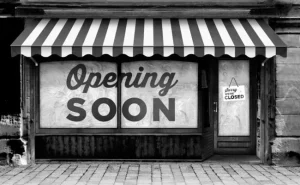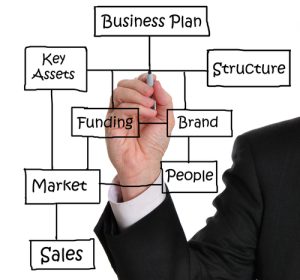
Are you dreaming of opening your own restaurant in Lebanon? If so, it’s crucial to understand the cost considerations for Starting a Restaurant in LebanonWhether you aspire to start a small café or a large fine dining establishment, your journey begins with a thorough understanding of the investment involved. Here’s a breakdown of the
Expenses you might need to consider :
-
Location and Rent:
Location is key in the restaurant business. Prime locations in cities like Beirut can be costly, but they offer higher footfall and visibility. On the other hand, suburban or rural locations might be less expensive but can limit your customer base. The size of the premises will also significantly impact the rental costs.
-
Building and Renovation:
Once you’ve secured a location, the next step is fitting it out. This could include structural renovations, interior design, exterior signage, kitchen setup, dining area decoration, and the installation of required systems (like fire safety and air conditioning). Always ensure your restaurant adheres to local health, safety, and accessibility regulations.
-
Equipment:
The kitchen equipment is another significant expense. Items like ovens, fridges, freezers, grills, dishwashers, and specialty equipment (like pizza ovens or sushi counters) can add up. Don’t forget about smaller items like utensils, dishes, glasses, and cutlery. Dakit offers a range of professional kitchen equipment suitable for various budget ranges.
-
Employees:
Your team is a crucial part of your restaurant. Costs here include salaries for chefs, kitchen staff, waitstaff, managers, and possibly security personnel. Remember, Lebanon’s labor laws stipulate minimum wage and working hours regulations that you must adhere too.
-
Raw Materials and Suppliers:
The cost of food and drink is a recurring expense that can vary based on your menu. Remember to source quality ingredients while negotiating the best prices with suppliers. Don’t forget to account for wastage and seasonal price fluctuations.
-
Licenses and Permits:
Obtaining the necessary licenses and permits has its costs. These may include food service licenses, liquor licenses, music licenses, and possibly others based on your location and the nature of your restaurant.
-
Marketing and Advertising:
Getting the word out about your new restaurant is essential. Your marketing budget could include costs for a website, social media advertising, print advertising, promotions, and events. Utilizing effective advertising strategies like those mentioned in our Dakit Kitchen Blog can help optimize this expense.
-
Utilities and Maintenance:
Monthly utility costs such as electricity, water, gas, and waste disposal must also be considered. Maintenance costs for equipment, building upkeep, and potential repairs should also be factored into your budget.
Starting a restaurant is a significant financial undertaking, but with careful planning and cost considerations for Starting a Restaurant in Lebanon it can be a rewarding investment. Remember, every restaurant is unique, so costs can vary widely based on your specific concept, location, and management choices. We recommend working with a financial advisor or business consultant to help create a detailed business plan and financial forecast.
It’s essential to note that costs may fluctuate, especially given economic conditions in Lebanon, so always plan for contingencies. With thorough research and careful planning, you can turn your dream of owning a restaurant into reality!

Step 1: Calculate Startup Costs
Your startup costs are the total amount you’ll need to spend to open your restaurant. They are typically divided into one-time costs and recurring costs.
One-time costs could include:
- Lease deposit: $1,250
- Renovation & interior decoration: $6,250
- Initial inventory (food and beverages): $1,250
- Kitchen and service equipment: $5,000
- Licenses and permits: $500
Total one-time costs: $14,250
Recurring costs are those that you’ll have to pay regularly. They could include:
- Rent: $500 per month
- Utilities: $125 per month
- Staff wages: $1,250 per month
- Food and beverages: $1,000 per month
- Marketing: $250 per month
- Maintenance: $125 per month
- Insurance: $75 per month
- Misc (cleaning, office supplies, etc.): $175 per month
Total recurring costs per month: $3,500
Step 2: Estimate Your Revenue.
Next, you’ll need to estimate your monthly revenue. Here’s a simple way to do this:
- Average customer spend (food and drink): $6.25
- Estimated customers per day: 50
- Days open per month: 30
Total estimated monthly revenue: 6.25 * 50 * 30 = $9,375
Step 3: Calculate Net Profit
Now, you can calculate your net profit by subtracting your monthly costs from your monthly revenue:
- Net Profit = Revenue – Costs
- Net Profit = $9,375 – $3,500 = $5,875
Remember, this is a simplified example and real-world conditions can vary greatly. It’s also important to note that many new restaurants may not make a profit in their first few months of operation due to initial costs and the time it takes to establish a steady customer base. Always make sure to include a buffer in your budget for unexpected costs or lower-than-expected revenue.
Working with a professional financial advisor can help provide a more accurate and personalized budget plan for your restaurant.
